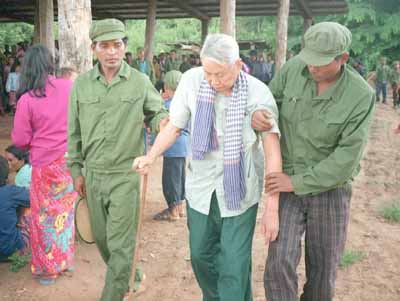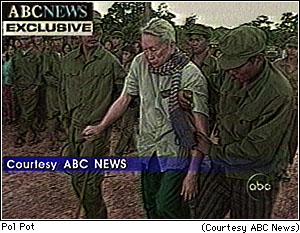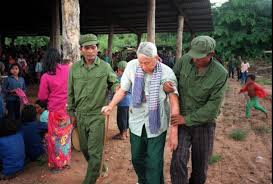The check is rarely in the mail: The dark side of freelance journalists trying to get paid for their work
By Nate Thayer
August 6, 2013
There is only one thing more frustrating to freelance journalists than being asked by for profit companies to work for free.
That is being forced to spend months fighting, arguing, begging, threatening, cajoling, and renegotiating to, if you are lucky, actually get paid a portion of the compensation you were promised for the work you have already done.
Every freelance journalist, photographer, musician and creative artist on the planet knows exactly this scenario–how unethical, debilitating, frustrating, and sometimes humiliating this, routinely, is part of the everyday cadence of freelancers who make a living practicing their craft.
Here is a portion of the latest example of my being forced to divert my attention today from writing for a living to trying to get paid for that work already performed that has taken up much of my last few weeks.
Most every freelance journalist, and creative artist, will immediately recognize, and is all too familiar with the depressing, common scenario.
For much of May June and July, I was solicited and commissioned by a major Hong Kong based company which promotes Chinese direct investment in the U.S. economy, to write articles, copy edit, and provide other professional consultancy work to help them write a news letter, corporate brochures, and other English language documents.
For freelance news journalists, such work is often drudgery, and slightly demeaning, but necessary to supplement the dwindling opportunities to make a living as a journalist in these profoundly changing times for a free press in free societies.
The Hong Kong company has, to date, despite scores of attempts on my part, not paid a single dollar for these months of work.
Today, I received an email from them, after no response to increasingly strident messages from me since early July, saying they had no intention of paying me–at all–for the professional services they initiated, commissioned me for, and that I provided them.
It is, unfortunately, not an uncommon scenario faced by freelancers everywhere.
from: XXXXXX<xxx.xxxx@xxxxxx.com>
to: Nate Thayer <thayernate0007@gmail.com>
cc: xxxxxx.xxxxxx@xxxxx.xxxx>
date: Tue, Aug 6, 2013 at 10:24 AM
subject: Response to second payment request
10:24 AM (3 hours ago)
Hello Nate,
Per your earlier request about $5980, I have discussed with xxx and here is our response.
You and I have agreed orally to work on the newsletter as a project and you have agreed to provide us with a compensation proposal during our first meeting in Caribou cafe on June 25th. However, you have failed to present us with that proposal. And the project didn’t yield much result because what you wrote was not usable for us. So I am afraid that we can’t pay you what you are asking for.
We appreciate your work and it’s regrettable that it didn’t work out well. I wish you best of luck with your career in the future.
Best,
xxxxxxxx
Communication Director
My Response:
Dear XXXX,
I think you must have sent me a message you intended for someone else, so I wanted to alert you so you could correct your error and direct it to the proper recipient.
This would save XXXXXX the embarrassment of being accused of being guilty of the most transparent, egregious, immoral, unethical and illegal business practices that are readily provable and evidenced by the mountain of documents from yourself and XXXXXX CEO XXXXXX to me soliciting my work, congratulating me on its quality, and repeatedly soliciting more work, which you acknowledged, approved and thanked me for, in writing, throughout June and July 2013.
There is an off chance that you actually didn’t push the wrong send button, and you actually seriously meant to tell me that you don’t intend to pay me for the 62 hours of work (which was an extremely generous and conservative invoice of my time and efforts made on your behalf in June and July, taking into account that you repeatedly missed deadlines, changed your requests, asked me to standby for urgent deadline work requests which then didn’t materialize, and other bumps and starts which I attributed to your lack of experience or knowledge of the production requirements of putting out a quality newsletter).
This is work you solicited and I performed at the request of you and XXXXXX CEO XXXXXXX that you are now in default in paying me the $5890.00 you owe.
If by some unfathomable chance you have taken leave of your sanity, and you actually intended to say that XXXXX, after contacting me and securing my professional services 2 months ago, in which the physical records of several hundred exchanges of emails, documents, text messages, Skype conversations, phone calls, conference calls between you, I , and XXXXX CEO XXXXX in Hong Kong, and personnel meetings, all of which document with indisputable clarity me having provided those professional services at your request and the request of XXXXX CEO XXXXX to XXXXXX during that period and are in my possession, that XXXXXXXX does not owe me compensation and payment of $5890.00 for providing my services, please clarify to me why the fuck not, promptly.
Two months after I began working for you, in which you have repeatedly delayed living up to your singular end of the deal—to pay me for my fucking work—you are now seriously contending that I didn’t work for you and you didn’t use my services at your request and initiation and are refusing to pay me?
Really?
As a matter of advice, it might be in your much better interest to rethink that strategy in your rather bizarre attempt to renege on having to live up to your promises and obligations to pay for the services you solicited, contracted, and received.
Here are some random samples of scores of quotes from your own messages to me that obviously shows that your suggestion that you did not agree to pay me or use my work you contracted me to perform for XXXXX, is ludicrous.
By my rough count, there were approximately 327 exchanges of emails, text messages, Skype conversations, Dropbox documents, phone calls, conference calls, and personal meetings in June and July between you, I, and XXXXXX CEO XXXXXXX.
From XXXXXX CEO XXXXXXXX to me on June 30:
On Sun, Jun 30, 2013 at 11:45 PM, XXXXXX wrote:
Nate
Thanks for your notes, these are my feedback, I have not talked with Min, but wanted to send this to you first, let’s discuss and get this moving.
Thanks
XXXXXXX
President & CEO
XXXXXXXX
From XXXXXXX to me and XXXXX CEO XXXXXXXXX July 1:
Hello Nate,
The newsletter outline is right on track. We have some comments to share with you. Please see the attachment. Please let us know if you have any questions.
Best,
XXXXXXXX
Communication Director
XXXXXXXXX
From me to XXXXXXX Chairman XXXXXX and Communications Director XXXXXX July 1:
XXXXXX:
See my comments highlighted in yellow below.
I thought the comments and suggestions were all spot on, useful, and good.
Cheers,
Nate
From XXXXXX to me July 1:
Hello Nate,
please find the attachment with our comments in red underline. We are riding on a good momentum here, please let us know your plan going forward.
Good luck with moving today!
XXXXXX
Communication Director
XXXXXXXX
From XXXXXX CEO XXXXXX July 1:
date: Mon, Jul 1, 2013 at 12:28 AM
subject: Re: Thanks for your notes
Hi Nate,
thank you, this is exciting to find a passionate, professional writer we can rely on.
July 2 email from XXXXXX to me:
Hello Nate,
We have drafted a Newsletter table of content, which includes the three articles that you are working on and also another 12 articles which we found “fit to print”. All of them need to be worked out this week. Next to you, XXXXX and myself will take up some writing. I just sent an email to our team for TOC comments and inputs. Here I am sharing with you.
Best,
XXXXXX
Communication Director
XXXXXX
XXXXXX Newsletter Table of Content for Your Comments
Dear colleagues,
We are redesigning the XXXXX newsletter. The newsletter will demonstrate our mission in building bridges between US and China, inform the readers about XXXXX developments and create a platform for XXXXX partners, XXXXX communities and XXXXX past events participants to contribute to XXXXX mission. The newsletter will have print and online edition and will contain texts, photos and videos.
Since the last time some of you saw the newsletter index, we have made quite some changes and renamed it as Table of Contents. Please take a look at the latest XXXXXXX Newsletter Table of Contents ( TOC) and share with me your comments. This TOC is designed primarily for the English newsletter, although we plan to let the Chinese newsletter to keep most of these items if not all.
Each numerical item represent a section and an article. Articles will generally be between 300 – 600 words, with one or multiple photos. We have set up 15 sections, which roughly doubles what we used to publish. Even though XXXXX, Nate ( outsourced writer ) and myself will take up majority of the writing, there are five articles that currently don’t have author. I highlighted them in yellow and if you are interested to produce any of these articles, please send an email to me.
Because we are working on a tight schedule, I’d like to ask you to please provide your comments before July 3rd, 6 pm EST.
Thank you!
From a July 8 email to me from XXXXX on XXXXXX official email:
Hello Nate,
Thank you for submitting the three articles. They are well developed, only need some minor adjustment, which we will mark out tonight. The newsletter is moving quickly. We plan to publish it this Friday. I have a translated article that needs some copy editing. I will send it to you in a separate email in an hour or so. I can see that you have put in a lot of effort, and I hope we can find a time to have coffee and recap after the dusts are settled.”
Or another message from XXXXX to me on July 8:
“Hello again,
I am sending you the short article that need some copy editing. This one can be worked out after you finish with article 2 and 3 revision. It’s a straight forward article, just need to smooth out and make it read like a 1st tier professional English news media article.”
Email to me from XXXXXX from July 11:
Hello Nate,
We are entering the final stages in the newsletter production. Let me give you an update since yesterday.
1. XXXXX approved all the section names and the article 2-4 packaging change.
2. Two more article folders are ready for copy editing. My colleagues sent me stories for article 7 and 8.
So for today, could you first finish the final copy editing for articles 7-15? Some of these are short articles. To purpose is to smooth the language, final round check. Some of the articles are already copy edited by you, such as # 9, 10, 12. Some are functional pieces, such as # 8, 11. For these kind, little changes maybe needed, but I still hope you simply go over them to approve the language for the last round.
For this kind of editing, because no big changes are needed, so there is no need for you to turn on track changes. If you want to show me places that you are unclear about or need me to look at afterwards, please highlight them in yellow.
Can you get this done before 5 pm today? And please send them in one by one as you finish copy editing.
After that, can you add a forth paragraph to dropbox article 2 to summarize what to be expect in the following three articles ?
XXXXXXX
Communication Director
XXXXXXX
There are dozens more, but I think you get the point.
I know you are young, inexperienced, and new to my country, and I know these kinds of unethical business practices are routine in your home country of the People’s Republic of China, so here is a bit of unsolicited advice to avoid unnecessary headaches for you as you start your budding career doing business in the properly organized world: Pay your fucking bills; pay them on time; don’t try and steal other people’s work; and live up to your promises.
One’s reputation as a person and a business of honor and integrity is important in a business environment driven by the rule of law and ethical conduct.
Given XXXXXXX singular mandate, using the company slogan “Building Trust, Creating Jobs”, is to promote Chinese direct investment in the United States by easing concerns among Americans and economic development officials that such investment will not be tainted by China’s well-earned reputation of using dubious business practices to make a fast buck and undermine the interests of those it is conducting business with, the irony of XXXXXX refusing to pay a contracted employee (that would be me) for services XXXXXX solicited, is a more than a tad ripe.
Please let me know if perhaps you have misspoken and let me know sometime in the next three hours.
On a positive note, I do think that your particularly stark attempt to refuse to live up to your legal and ethical responsibilities by trying to wangle out of paying for the services you solicited, contracted, and received, does make for a perfect case study of what thousands of freelance journalists and other producers of creative products face daily and are all too familiar with.
On a more negative note, for you in any case, I assure you, have fucked with the wrong person.
If you are under the delusion that you will not very much regret not having the $5890.00 in my bank account by the end of the business day Wednesday, August 7, you would be mistaken.
With all sincerity,
Nate Thayer
Within two hours of me sending this email, the Chinese company communication director rang me on the phone, attempting to argue they had no legal obligation to pay me anything.
“Let me be clear here. Fuck you! You either have $5890.00 wired and in my my account by the close of business day Wednesday August 7, or you will, I assure you, regret you were ever under the profound miss-impression that retaining my professional services could be had without living up to your end of the pretty simple arrangement—pay me my fucking money! This is not a matter of discussion, little less negotiation.”
She then offered me $1500.00
“Fuck you! You will pay the $5890.00 you owe me and a wire transfer in my bank account with that $5980.00 by the close of business Wednesday, August 7.”
“I will let you know our decision,” she said before I hung up the phone.
3 minutes later, my phone rang. It was the company CEO from Hong Kong. The conversation was civil and polite and clear. He agreed to send the money owed me by wire transfer immediately, today Hong Kong time.
But it took 3 weeks of dozens of increasingly acrimonious messages exchanged, a considerable amount of angst, and an entirely unnecessary and distracting amount of effort to simply get paid what had been agreed long ago was the amount owed me.
I estimate I spend 40% of my time negotiating payment and then trying to get those who commissioned my writing and agreed to compensate me for it to live up to their agreement to do so.
It is hard enough to make a living as a freelance journalist these days, but it is made infinitely more difficult by those who commission one’s work, invariably under the pressure of tight deadlines, and then give no priority to living up to their side of the agreement to fairly compensate you.
I detest it. And I, for one, am fed up with it.
Within hours of receiving my above message, the $5890.00 was transferred by wire to my bank account.
Another unpleasant day distracted from focusing on the only thing I do know what to do—write.
Tags: Freelance Journalism, Journalism, Journalism ethics, Media Ethics, Nate Thayer, Nate Thayer blog, Pay the Writer






